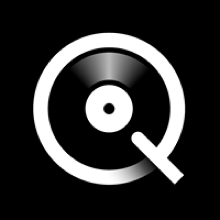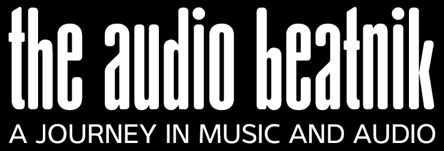
If you pay attention to the numerous online sites for audiophiles or attended the Rocky Mountain Audio Fest or the Capitol Audio Fest this year, you have heard about Qobuz. This French-based streaming service has spent a good bit of the last six months introducing itself in preparation for an early 2019 launch in the US. In fact, David Solomon, Chief Hi-Res Evangelist at Qobuz, made the rounds of the audio shows, and like me, you may have had the chance to meet him.
So what’s the hype all about, and how does it affect you as an audiophile? Maybe not much, especially if you aren’t into streaming or if Tidal or Spotify scratch the sweet spot of your listening tastes. If your ears are looking for music beyond the chart-toppers, Qobuz is more likely to introduce you to something of interest, especially classical music and music from lesser-known artists, which have a higher profile on Qobuz than on the other services.
And, while neither Qobuz or Tidal can compete with Spotify in terms of sheer numbers of tracks to stream, the audiophile experts who have weighed in say that in terms of hi-res quality, Qobuz’s direct 24/96 and 24/192 streams beat the MQA encoded alternatives on Tidal. So, yes, as an audiophile,the Qobuz launch does affect you if you stream because you’ve invested in having great sound.
In fact, according to their mission statement Qobuz’s goal has been to offer the digital world the quality sound, quality editorial and freedom of choice excluding bias that audiophiles have always cherished. To Qobuz, this means a service that caters to highly specialized music lovers. So, want to know more about the Qobuz experience? Here’s some details from David Solomon on what to expect.
Q: What can you tellus about Qobuz and hi-res tracks?
Solomon: “If you’re looking for the best sounding content under one roof, Qobuz has at least a million more hi-res tracks than anyone else. No other company is streaming files the size of Qobuz. However, due to vastly improved internet infrastructure in general, and with 5G just around the corner, timing has never been more perfect to deliver such high-quality musical content in a secure and consistent way.
Qobuz has a commanding presence at shows where hi-res audio has the largest initial demand. We make this investment because it’s important for the manufacturers and attendees to know and hear why hi-res files sound better and also to provide a direct line of communication back to the company.”
Q: What type of user experience can subscribers look forward to?
Solomon: “Our listeners can absolutely affect the way Qobuz works as well as the content that is desired. Qobuz tailors visible content to your preferences. When you open your Qobuz home page, you will see music that you’ve told us you like. There’s no agenda to push one music genera over another unless that’s the way you want to see it. To help with this task [user’s becoming familiar with the service], partner web pages will be set up on Qobuz.com to inform and educate music lovers on how to get the best sound quality from Qobuz.”
Q: What else do you see as an advantage for Qobuz users that’s not found in other streaming services?
Solomon: “Qobuz is the only hi-res company that gives subscribers the ability to download on a computer, not just a mobile device. This greatly helps users who may want to download during shows where the internet may not be dependable or home users who may want to download to their home network.”
Q: What does Qobuz do for the audio industry that is uniquely different?
Solomon: “Qobuz supports the audio industry in a way no other streaming service does. This is very helpful to music lovers who want to hear Qobuz and know more about how it works from industry experts. Through the Qobuz Society, we have a forum for feedback that allows dealers and manufacturers to have a constant communication channel to help on a continuous path of improvement.”
Q: How does Qobuz better support artists financially?
Solomon: “By way of pricing and the paid download site, Qobuz is able to help support artists better by offering a higher rights pay-out (since Qobuz, is more expensive, payouts are proportionally higher, and downloads pay-out more than streams).”
Pricing and Other Information
The beta version of Qobuz is currently being tested in the US in preparation for the public release on all Mac/iOS/Android/Windows operating systems early next year. The finalized pricing announced here last week is listed below.
- Sublime+: $299.99/year for full Hi-Res streaming and substantial (40-60%) discounts on purchases from the Qobuz Hi-Res (up to 24-bit / 192 khz) download store.
- Studio: $24.99/month for unlimited Hi-Res (24-bit /up to 192 khz) streaming ($249.99 annually).
- Hi-Fi: $19.99/month for streaming including 16-bit CD quality streaming ($199.9 annually).
- Premium: $9.99/month for 320 kbps MP3 quality streaming ($99.99 annually).
![]()

When will you be available in the US?
Beta customers are signing up now. We will be installing this week at our house.